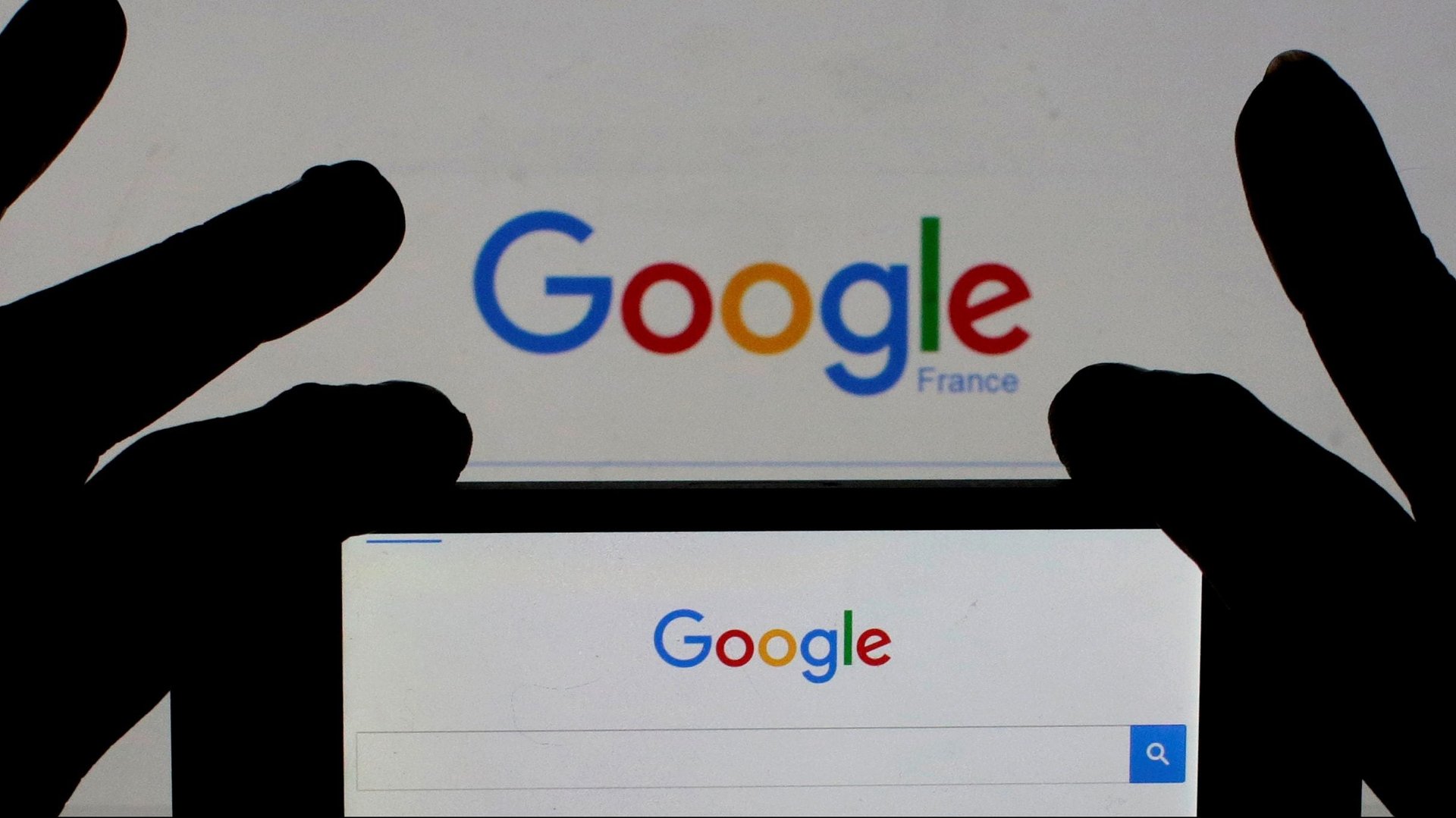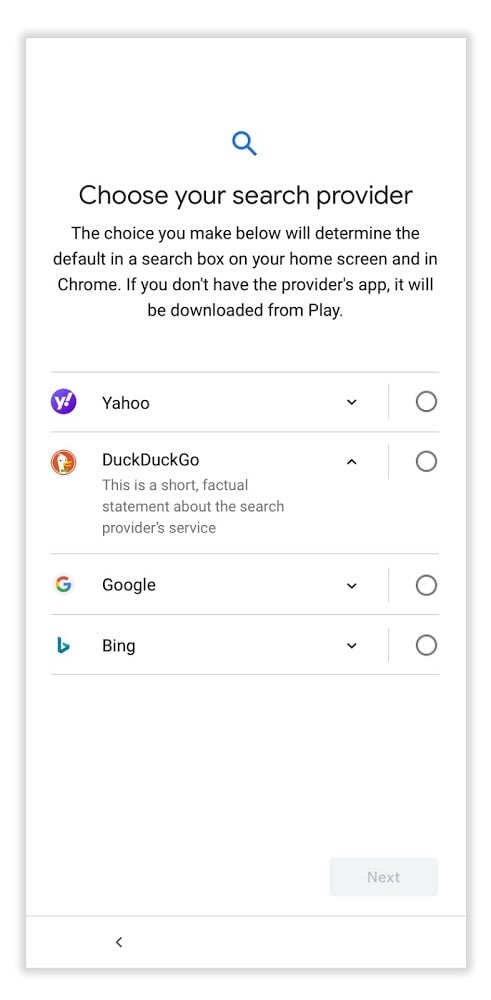What is info.com, the search engine soon to appear on all Android devices in Europe?
European Android users are about to see a lot more of info.com.


European Android users are about to see a lot more of info.com.
Google recently auctioned off three slots for external search providers to appear on a setup screen for Android devices sold in the European Economic Area (EEA), starting March 1. Two search engines—info.com and privacy-focused DuckDuckGo—won a slot in all 31 countries in the auction. Google will also be a search engine choice on Android devices in every EEA country.
But what is info.com?
Info.com, or InfoSpace, is an online search company and one-time internet darling. It was founded in 1996 in Seattle and backed by Microsoft co-founder Paul Allen. InfoSpace went public in December 1998, at the height of the dot-com bubble. By March 2000, it was valued roughly on par with Boeing, at $31 billion. Not long after that, the bubble burst and InfoSpace’s stock price collapsed. “The company once worth more than Boeing fell to the value of two Boeing 777s,” quipped the Seattle Times.
It later emerged that InfoSpace officials, including founder Naveen Jain, misled shareholders about the company’s performance in the early 2000s. A shareholder sued Jain and other current and former InfoSpace directors and officers on behalf of the company in 2001; the company eventually received $83 million from defendants in a 2005 settlement.
Since its short-lived heyday, InfoSpace has gone through a series of sales and restructurings. In the late 2000s, InfoSpace sold off its directory and mobile app businesses (including mobile ringtones), and refocused on “metasearch,” or aggregating results from other search engines. It also briefly dabbled in online retail. In 2012, InfoSpace acquired an online tax preparation software company and changed the new group’s name to Blucora: “a neutral, extensible vehicle for us as we continue to evolve our strategy and articulate our story,” a company spokesperson said at the time.
In 2016, Blucora sold InfoSpace for $45 million to OpenMail, a California-based ad-tech company now known as System1 that also owns HowStuffWorks, CarsGenius, and Mapquest. InfoSpace today owns metasearch brands Dogpile and WebCrawler, which aggregate results from search engines like Bing, Google, and Yahoo.
“System1 is excited for info.com to participate in the Android Choice Screen and to provide a compelling experience for consumers in Europe,” System1 CEO Ian Weingarten said in a statement.

Several European search players that boycotted Google’s auction characterized info.com as an “arbitrage” player. Christian Kroll, CEO of eco-friendly search engine Ecosia, said InfoSpace makes money in part by buying up search ads on sites like Google and Bing and redirecting the searcher to another page of ads on InfoSpace. “It’s exactly the kind of company that we think shouldn’t be on the choice screen,” Kroll said.
“If you have to pay for the users it’s clear that some arbitrage players will enter the market,” Marc Al-Hames, managing director of privacy-focused search engine Cliqz, wrote in an email.
Weingarten said info.com will launch on the Android choice screen with new search features and will continue to add features to improve the user experience. “Like most search engines, we do marketing for info.com to help educate more consumers about our search experience,” he said. “We look forward to introducing info.com to millions of people in Europe.”
Another little-known name that fared well in Google’s auction is PrivacyWall, an internet company with about a dozen people based in San Juan, Puerto Rico. Jonathan Wu, PrivacyWall’s founder, said he started the company in 2017 as a side project to focus on consumer privacy after a decade in the digital ad space. PrivacyWall’s first product was a firewall for PCs to help users block the “shadow profiles” that companies like Facebook can build on them without their knowledge.
Wu said PrivacyWall started to focus on search around the time that “the Android choice screen opportunity came around.” PrivacyWall won choice screen slots in 11 of 31 countries in the auction. Wu declined to say how many users PrivacyWall’s search engine has, saying the product is just being launched. He doesn’t think arbitrage is a fair characterization of what the company is doing.
“Our mission really is to protect consumer privacy,” he said. “I think we have to make a choice as to whether we participate or not. If we didn’t participate, we wouldn’t be able to offer these products to our consumers. And really, would consumers be better off?”